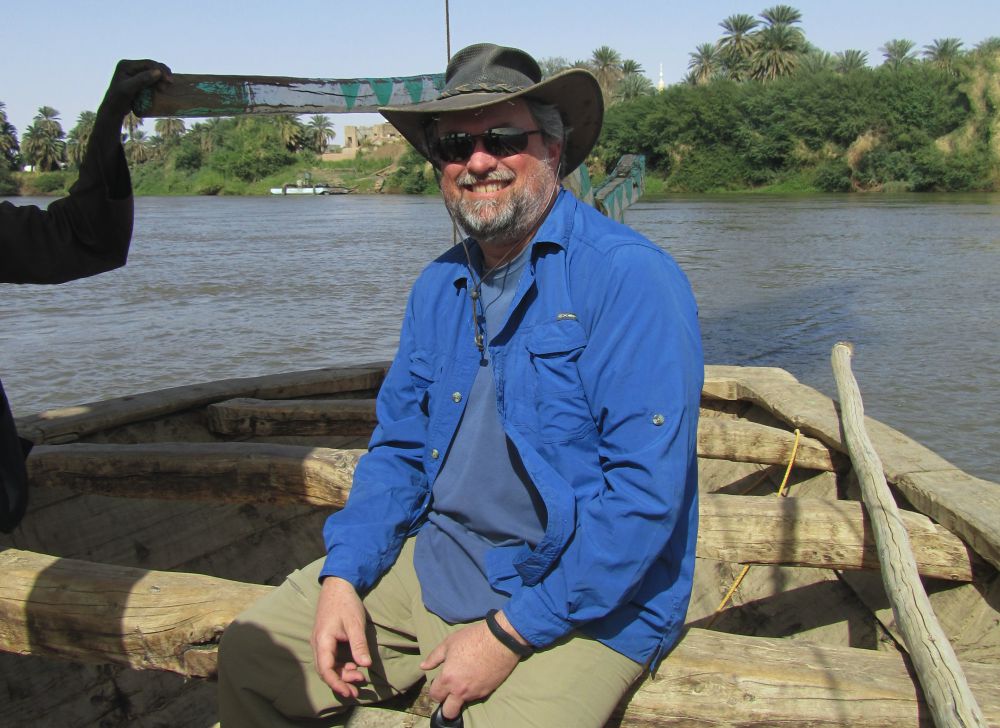
The African Egypt
Stuart Tyson Smith, a UC Santa Barbara professor of anthropology and one of the country’s leading Egyptologists, will deliver the inaugural W.E.B. DuBois Virtual Lecture for Harvard’s Hutchins Center for African & African American Research. His Zoom lecture, “Black Pharaohs? Egyptological Bias, Racism, and Egypt and Nubia as African Civilizations,” will take place Tuesday, Sept. 22, at 1 p.m. Pacific Time. Register here to attend.
Smith, who has been excavating the ancient site of Tombos in modern Sudan (Nubia) since 2000, has focused his research on questions of identity, especially ethnicity, and intercultural interaction between ancient Egypt and Nubia.
In the 8th century BCE, he noted, Kushite rulers were crowned as Kings of Egypt, ruling a combined Nubian and Egyptian kingdom as pharaohs of Egypt’s 25th Dynasty. Those Kushite kings are commonly referred to as the “Black Pharaohs” in both scholarly and popular publications.
That terminology, Smith said, is often presented as a celebration of black African civilization. But it also reflects a longstanding bias that holds the Egyptian pharaohs and their people weren’t African — that is, not Black. It’s a trope that feeds into a long history of racism that traces back to the some of the founding figures of Egyptology and their role in the creation of “scientific” racism in the U.S.
Drawing on some of his own research in Sudanese Nubia, Smith said he will first discuss the question of ancient Egypt as an African civilization.
“Then with examples from our ongoing excavations at Tombos, I will discuss Kushite civilization as a sophisticated African neighbor that adapted Egyptian kingship and other cultural features, making them their own,” he said. “Within these discussions, I will take Egyptological bias and racism into consideration, and will conclude with some remarks on why it is important in the context of anti-racism today to acknowledge the Black African foundation and origins of both Nubia and Egypt.
“It has always struck me as odd that Egyptologists have been reluctant to admit that the ancient (and modern) Egyptians were rather dark-skinned Africans, especially the farther south one goes,” Smith continued. “As Bruce Williams pointed out years ago, an ancient Egyptian transported to the American South in the days of segregation would not be allowed to sit at the Woolworth’s lunch counter, would have to go to the back of the bus, would be barred from facilities reserved for whites. The same applies to most of the modern Nubians, Sudanese and Egyptians that I know and have worked with.”
Smith, who is also director of UCSB’s Institute for Social, Behavioral and Economic Research, noted that the work of early American Egyptologists was used as justifications for American slavery, segregation and anti-blackness in the 19th and 20th centuries.
“This has been an interest of mine for a while,” he said, “and I recently have been exploring this topic in more depth, especially relevant and I think imperative in the context of anti-racism today.”
Nearly 3,000 years after the rise of the Kushite Pharaohs, Smith said it’s possible to draw a line from those Nubian kings to the Black Lives Matter movement today.
“I’ll just say one more thing,” he said. “The acknowledgement of ancient Nubia and Egypt as Black African civilizations destroys the logic of racism, especially American racism with its strongly polarizing view of blackness and whiteness drawn from slavery.”



